Lawyers for the WikiLeaks publisher charge that while British courts looked the other way, the U. S. has been distorting and withholding evidence to engineer his extradition, Cathy Vogan reports.
By Cathy Vogan
in London
Special to Consortium News
 A clue to some of the legal arguments Julian Assange’s lawyers will likely make at a two-day hearing this week at the High Court in London is contained in a 150-page submission that a judge rejected last June.
A clue to some of the legal arguments Julian Assange’s lawyers will likely make at a two-day hearing this week at the High Court in London is contained in a 150-page submission that a judge rejected last June.
Justice Jonathan Swift’s three-page ruling to deny Assange’s application to appeal is what the imprisoned WikiLeaks publisher wants reversed at the hearing beginning Tuesday at the Royal Courts of Justice.
If he is again denied leave to appeal, this time by two judges, Assange could theoretically be put on a plane to the United States as early as Wednesday night. But the decision could be delayed for months.
Assange initially won his case in the magistrate’s court in January 2021, where extradition was blocked on health grounds and the dangerous conditions in U.S. prisons. But the U.S. won on appeal in October 2021 when it belatedly issued “assurances” that it would not mistreat Assange in the U.S.
That led to the British home secretary’s decision in 2022 to extradite Assange to the United States, which Assange’s team seeks to appeal.
In the U.S. he would be put on trial for conspiracy to commit computer intrusion and for espionage in his publication of U.S. government secrets that covered up state crimes. If convicted, he could end up in a U.S. dungeon for up to 175 years — potentially a virtual life sentence.
Assange’s lawyers also want to appeal several points of law in the magistrate’s ruling that initially blocked extradition but which sided with the U.S.
In summarily denying Assange’s bid to appeal last year, Judge Swift wrote:
“There are 8 proposed grounds of appeal. They are set out at great length (some 100pp.) [sic. 150pp], but the extraordinary length of the pleading serves only to make clear that the proposed appeal comes to no more than an attempt to re-run the extensive arguments made to and rejected by the District Judge.
An appeal under the Extradition Act 2003 is not an opportunity for general rehearsal of all matters canvassed at an extradition hearing.”
Swift then restricted Assange’s legal team to just 20 pages for this week’s hearing. Rather than being a “general rehearsal” the court will hear serious points of law.
Points of Appeal
In an X thread, Stella Assange, Assange’s wife and former lawyer, has fleshed out these points. She wrote:
“1. Julian Assange should not be extradited to face prosecution and punishment for his political opinions exposing state criminality. Assange is being prosecuted for exposing US government criminality including war crimes and torture. There is extensive evidence of Assange’s political opinions on the importance of transparency in being able to hold governments accountable to deter future abuses. Extradition for political opinions is not allowed. The new evidence which emerged since the hearing of the C.I.A. plans to kidnap and/or kill Assange further supports this ground.
2. Julian Assange should not be extradited to face prosecution where the criminal law is being extended in an unprecedented and unforeseeable way. This is the first time in US history that a publisher has been prosecuted for obtaining or publishing (as opposed to leaking) US state secrets. The drafters of the Espionage Act did not intend for publishers to fall within its ambit, unchallenged expert evidence showed that receipt and publication of state secrets is routine, and that there was an ‘unbroken practice of non-prosecution’ of publishers.
The prosecution ‘crosses a new legal frontier’ and ‘breaks all legal precedents’. Extradition would therefore expose Assange to a novel and unforeseeable extension of criminal law. To extradite Assange would be a grave violation of Article 7 ECHR.
[Akin to the Fifth Amendment, Article 7 of the ECHR says that a crime must be foreseeable. There was no indication in 2010 that the press could be charged with espionage for obtaining and publishing classified information. The charges against Assange are unprecedented and there is no wording in the Espionage Act to warn foreign journalists of potential liability, according to U.S. constitutional attorney Bruce Afran.
The abuse of process and solid legal arguments against extradition were ignored in Justice Swift’s decision.]
European Court of Human Rights building in Strasbourg, France. (Guilhem Vellut, Flickr, CC BY 2.0)
- Julian Assange should not be extradited because his prosecution amounts to a grave violation of his right to free speech. Publishing state secrets can play a vital role in a democratic society and criminal prosecution and conviction for such publications will deter the press from playing this ‘public watchdog’ role. The US indictment against Assange criminalizes essential journalistic practices and imposes a disproportionate sentence (175 years). To extradite Assange would be a grave violation of Article 10 ECHR.
- Julian Assange should not be extradited given that the US affirms that he may not be granted any First Amendment protections at all. The US said it would argue at trial that Assange would not get First Amendment protection (Free Speech protections) as he is not a US national (he is Australian). In other words, as a defendant he would be prejudiced at a trial as he is not a US citizen.
- Extradition should be barred because Julian Assange will not receive a fair trial. He cannot mount a public interest defense. In the US system, there is a tradition of coercive plea bargaining via overcharging to secure a conviction. Julian Assange faces 175 years for his journalism. The jury pool will be drawn from people connected to US Government national security agencies and contractors, and therefore likely to be prejudicial to Julian Assange. They will also be sensitive to public comments made by the US President and C.I.A. Director, tainting the presumption of innocence. Evidence obtained through the inhuman and degrading treatment of Chelsea Manning, spying on his lawyers and the illegal removal of Julian Assange’s legal files from the Ecuadorean Embassy mean there is no prospect for a fair trial. To extradite him would be a grave violation of Article 6 ECHR.
- The US-UK Treaty prohibits extradition for political offenses meaning Mr Assange’s extradition would violate the treaty, international law and amounts to an abuse of process (including Article 5 ECHR). The offenses with which Assange is charged are all formally “pure political offenses” and therefore are extradition-barred under article 4(1) of the US-UK Extradition Treaty. It is an abuse of process for the US to make an extradition request which is prohibited under the terms of the Treaty.
- Renewed application to admit fresh evidence about US plans to kidnap/render/assassinate Mr Assange in 2017 – relevant to his Article 2 and 3 ECHR rights. The C.I.A. planned to kidnap and assassinate Assange. This indicates that he will be subject to inhuman and degrading treatment if extradited to the US. To extradite Assange would mean delivering him right into the hands of the very people who plotted to assassinate him.
- The Extradition Treaty would allow the US to amend or add charges which could expose Julian Assange to the death penalty. Under the same facts alleged in the extradition request, Julian Assange can be recharged under provisions of the Espionage Act which carry the death penalty. It is noteworthy that Chelsea Manning was charged with ‘aiding the enemy’, which carries the death penalty and US government officials have publicly labelled the allegations against Assange as treason and called for the death penalty.”
The legal arguments in Julian Assange’s High Court extradition hearing on 20-21 February.
Thread: pic.twitter.com/gX04bWIfZJ
— Stella Assange #FreeAssangeNOW (@Stella_Assange) February 5, 2024
Deception
Underlying these points is the deception practiced by the U.S. throughout the extradition process.
While the British courts have looked the other way, the United States has been distorting and withholding evidence to engineer Assange’s extradition, his lawyers charged.
The magistrate and High Court judges have conspired, or at the very least, deliberately ignored clear U.S. deception on a number of issues in Assange’s case, for example:
- The U.S. dropped the argument that Assange conspired with WikiLeaks source Chelsea Manning to hide her identity while hacking into a U.S. government computer but kept it in the indictment anyway.
- The indictment says harm was caused to U.S. informants by WikiLeaks releases even though a U.S. general testified in Manning’s court martial that there was no such evidence;
- The U.S. failed to disclose to the British courts that Assange’s extradition and sentencing for a term beyond his natural life span would prevent him from cooperating with the International Criminal Court (ICC) investigations into alleged U.S. torture and other war crimes.
- The U.S tried to link the WikiLeaks‘ “Wish List” to Manning’s leaks when it clearly was not.
Assange’s lawyers also allege the U.S. purposely withheld evidence in relation to the un-redacted State Department cables that would have failed to meet the test of dual criminality in an extradition case.
The defense accuses the U.S. of falsely arguing that a ban on extradition for political offenses appears only in the U.S.-U.K. Extradition Treaty and not in the Act of Parliament that governs the treaty. This is deceptive because the Act also bars extradition on the basis of political opinions.
Nevertheless, the magistrate in Assange’s case, chose only to deny extradition on health grounds. Stating that she would rely on the Act and not the Treaty, Vanesa Baraitser ignored that the Act does not allow extradition because of political viewpoints.
Assange’s lawyers argue that these deceptions by the U.S. should disqualify the case against him under the “Zakrzewski Abuse” doctrine.
The ‘Hacking’ Allegation

Chelsea Manning in New York, May 2021. (Chelsea E. Manning, CC BY-SA 4.0, Wikimedia Commons)
The U.S. prosecution purposely distorted its own evidence from the 2013 Chelsea Manning court-martial to allege interaction between Assange and Manning to obtain classified information, the submission argues. So far two British courts have bought the narrative.
The U.S. indictment alleges Assange engaged in a conspiracy with Manning to break into government computers to hide Manning’s identity.
Although hiding a confidential source’s identity is part of a normal reporter-source relationship, testimony at Assange’s extradition hearing from a forensic examiner revealed there was no proof, and neither was he asked to prove that Manning ever communicated with Assange.
It was argued during Manning’s court martial 10 years ago that her purpose in asking for help in cracking a hash of a password to a local computer was likely to install video games, utilities, films and music videos – denied to active duty military personnel.
Defense witnesses in Manning’s case revealed that she regularly performed this task for fellow soldiers on computers, which had recently been re-imaged, thus wiping out what had previously been installed. According to the defense testimony of forensic examiner Patrick Eller at Assange’s 2020 extradition hearing, there was no classified material on the local computers.
Instead, classified data was held on external databases, to which Manning had top-secret security clearance and password access, as the U.S. indictment of Assange itself admits.
It was also known that no matter what login Manning used, investigators traced the IP address of the terminal that she used. So Manning could never hide her identity by logging in as another user and she could only use her own credential and her clearance to access these documents.
Plus, Manning had already transferred nearly all of the classified material to WikiLeaks before the chat between Manning and someone at WikiLeaks, which the indictment focuses on and alleges was Assange.
US Withdraws Claim, But Keeps It in Indictment
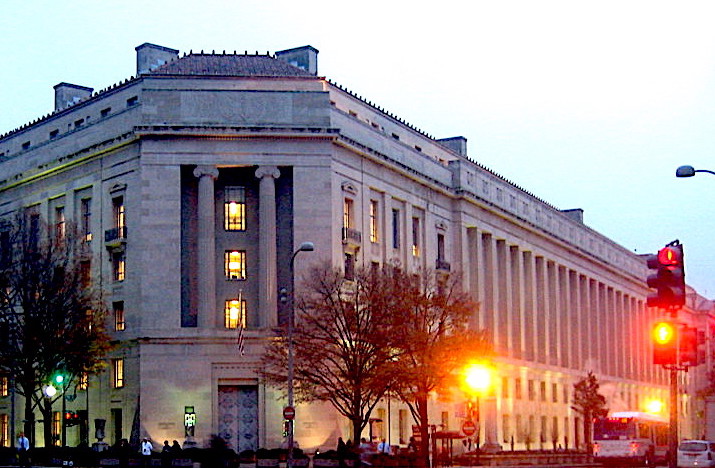
U.S. Department of Justice headquarters in Washington, D.C. (M.V. Jantzen, Flickr, CC BY-NC-SA 2.0)
Assange’s lawyers also wrote deep into its rejected submission that the U.S. had “belatedly” withdrawn its claim related to the Conspiracy to Commit Computer Intrusion charge.
Gordon Kromberg, the assistant U.S. attorney in the Eastern District of Virginia, wrote that it was now “…not alleged that the purpose of the hash cracking agreement was to gain anonymous access” to any of the databases in question. (Page 124 of submission.)
Nevertheless, the prosecution persuaded the magistrate not to dismiss the charge. In her ruling Baraitser suggested there may have been some other purpose she didn’t understand, and so decided to leave it in, as “a matter for trial.”
In the submission, the defense pointed out how Eller’s testimony was not only irrefutable and definitive, but that the forensic evidence leading to the withdrawal of the U.S. argument had been brought forward at Manning’s court martial.
Assange’s team asserted plainly that the U.S. had misled the British court in contradiction of its own evidence, the defense wrote in their submission on Page 125. It says:
“Mr Eller told the DJ (in evidence which was not challenged) that it was the Government’s own evidence in Ms Manning’s proceedings which showed this. Castillo, Murua and Zakrzewski all show that an extradition request which misrepresents a government’s own evidence cannot be dismissed as a matter to ‘ventilate before a jury’ (Judgment, CB/2, §381).”
Although the so called “hacking” charge carries only a five year sentence, it is not minor. It has been the hook attempting to establish Assange as a conspirator with Manning to obtain classified information. It opened the way to charging him with espionage.
But with that disavowal, we appear to be left with the passive reception of material by WikiLeaks, with no evidence of conspiracy and no case for espionage.
Did Justice Swift even get to page 129 of the 150 page submission? He said there were only 100 pages and, dismissing the lot, appeared miffed at being ask to read so much. He flatly ignores arguments why the magistrate erred in her judgement or misunderstood any of the highly technical evidence. The submission says:
“The DJ has fundamentally misunderstood the evidence on this issue. It is flatly incorrect that ‘The defence has not disputed that … important forensic evidence was found by army investigators on the FTP user account in [Manning’s] name’. (Judgment, CB/2, §381). Manning never accessed (and – the point is – could never access) any ‘FTP user’ account, because the passcode hash was impossible to decrypt. Mr Assange is not ‘offer[ing] an alternative explanation’ for ‘these facts’ (Judgment CB/2, §381); they did not occur.”
The U.S. knows all this and deceptively argued their case anyway. And Baraitser, the magistrate at Assange’s hearing, dutifully disregarded the forensic evidence and decided in the U.S. favor on the matter of alleged computer intrusion.
Alleged Harm to US & Its Sources
 U.S. Brigadier General Robert Carr, who led the post-Wikileaks investigation into the disclosures’ impact, admitted under oath at the Manning court martial that no one was killed as a result of the WikiLeaks revelations.
U.S. Brigadier General Robert Carr, who led the post-Wikileaks investigation into the disclosures’ impact, admitted under oath at the Manning court martial that no one was killed as a result of the WikiLeaks revelations.
In her memoir, README.txt, Manning describes on page 217 that Carr had attempted to mislead the court in a way that would further incriminate her, and indeed WikiLeaks, but failed.
“He tried to connect my disclosures to the death of an Afghani at the hands of the Taliban, but the man who died hadn’t appeared at all in the diplomatic cables, and [Judge Denise] Lind ordered this part of the statement removed from the testimony,” Manning wrote.
Manning continued:
“Another witness, Commander Youssef Aboul-Enein, part of the Pentagon’s Joint Intelligence Task Force for Combating Terrorism and a military advisor to the George W. Bush administration during the initial invasions of Iraq and Afghanistan, argued that the SIGACTs’ evidence that the United States had killed civilians would help America’s enemies with fundraising and recruitment.
He could point to just two instances in which the terrorist organization had used anything obtained from the SIGACTs, though: once in 2010, in its English- language recruitment magazine Inspire, and in a video the following year by Adam Gadahn, an American who’d joined al-Qaeda and become a spokesperson.
On cross-examination, Aboul-Enein said that while the SIGACTs might reveal a pattern of U.S. military activity, al-Qaeda hadn’t had any tactical victories as a result of my disclosures. Once again, the narrative was set forth: nothing bad has actually happened—but it might have. I wanted to scream.” [Emphasis added]
Assistant U.S. Attorney Gordon Kromberg, who has been repeatedly accused of using unethical tactics in pursuit of convictions, added no victims to Carr’s empty claim of deaths caused by WikiLeaks in his affidavit to Baraitser’s court.
And yet the U.S. in the courtroom, the media, and in the political arena continues to pursue this grand and bogus claim of harm done to the U.S. and its sources.
For instance, just last summer, U.S. Secretary of State Antony Blinken said in Australia, in response to Australian efforts to end Assange’s prosecution:
“What our Department of Justice has already said repeatedly, publicly, is this: Mr Assange was charged with very serious criminal conduct in the United States in connection with his alleged role in one of the largest compromises of classified information in the history of our country.
Blinken with Australian Foreign Minister Penny Wong in Brisbane, Australia, July 2023. (State Department/Chuck Kennedy/Public domain)
The actions that he is alleged to have committed risked very serious harm to our national security, to the benefit of our adversaries, and put named human sources at grave risk of physical harm, grave risk of detention.”
Manning concluded:
“People on the ground in Iraq and Afghanistan could see the locations of U.S. military bases and convoy routes. They didn’t need to look at documents online. Yet the government was so afraid of these learning true information about how our conduct abroad stood in stark contrast to our own stated principles.”
Much of what the U.S. does militarily backfires, as do their poorly constructed lies and cover-ups. Ironically it is through the vengeful persecution of Manning and Assange that the world has become more aware of the discrepancy between the U.S. ’s conduct abroad and its own stated policy.
Despite being fully aware of the government’s own testimony in the Manning trial, the U.S. pushed these falsehoods before Baraitser, who accepted them without question.
Evidence Withheld to Imply Dual Criminality
 Extradition is only possible when an act is a crime in both the extraditing and requesting nation. The U.S. argued in court that Assange violated both the U.S. Espionage Act and the U.K. Official Secrets Act by publishing classified information.
Extradition is only possible when an act is a crime in both the extraditing and requesting nation. The U.S. argued in court that Assange violated both the U.S. Espionage Act and the U.K. Official Secrets Act by publishing classified information.
However, the U.S. withheld evidence showing that WikiLeaks had published un-redacted diplomatic cables only after they were made public by “hundreds of websites,” including by cryptome.org and The Pirate Bay.
While unauthorized possession and dissemination of defense information is classified as a crime in the Espionage Act, under the Official Secrets Act it is not an offense to republish classified information if it’s already in the public domain, and if publication won’t cause serious harm.
An example of this was the Spycatcher case, defended and won in the Australian High Court by none other than Malcolm Turnbull, who later became the country’s 29th prime minister.
In a 2011 speech at the Sydney University Law School, Turnbull highlighted the arguments that won him the case for former British spy Peter Wright, author of the book Spycatcher. Turnbull was able to get the court to lift the MI5 injunction on the publication of the book. One of Turnbull’s arguments was that “there was absolutely nothing in the book which had not been published somewhere else.”
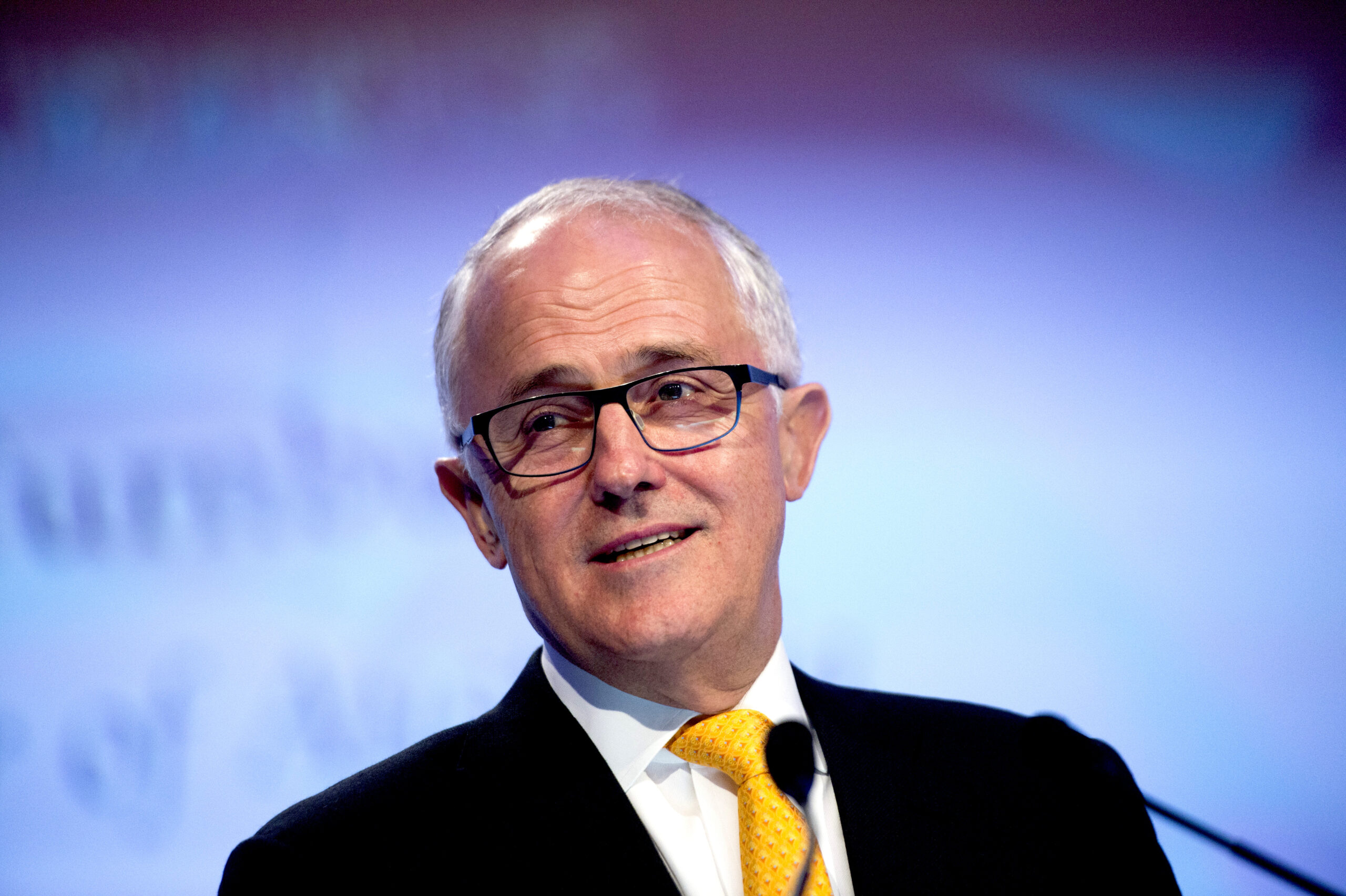
Malcolm Turnbull in June 2017. (Chairman of the Joint Chiefs of Staff, Wikimedia Commons, CC BY 2.0)
“We also argued that the book revealed the commission of crimes and other wrongdoing,” he said. Turnbull said the British government’s case “was plainly untenable as an effort to enforce the public law of another country in an Australian court.”
[Listen to Malcolm Turnbull’s speech:’Reflections on Wikileaks, Spycatcher and Freedom of the Press’]
Since the un-redacted Diplomatic Cables had been published elsewhere before WikiLeaks published it, the Official Secrets Act thus could not apply and nor should dual criminality, a conclusion that alone would doom the U.S. extradition case.
The ICC & Assange
Assange’s presence is required at the ICC to testify against U.S. military and C.I.A. torture, his lawyers said. The disproportionate sentence he is facing, beyond the term of his natural life, would prevent him from ever doing so.
His lawyer’s 150-page submission says:
“The unchallenged evidence before the DJ was that the ICC’s investigation into these crimes was founded on inter alia the WikiLeaks disclosures (Lewis 5, EB/35, §9).41 WikiLeaks’ materials, and Mr Assange, would be ‘essential’ to any ICC prosecution (Lewis 5, EB/35 §16/ EB/43 Tr 14.9.20, p14 – unchallenged).
v) Section 11 (Ground of appeal 6) with the result that Mr Assange is placed permanently out of reach of the ICC or any other judicial body that might investigate/prosecute the crimes he exposed, the U.S. have ratcheted the counts in the indictment in order to expose Mr Assange to a Guideline sentence in excess of his remaining natural life.”
Physical & Psychological Ailments
There are two other matters not mentioned in the 150-page submission that could figure at the hearing this week. One pertains to Assange’s health.
A distinction was drawn by Lord Chief Justice Ian Burnett, during the October 2021 High Court hearing, between Assange’s health condition and that of the alleged hacker Lauri Love, whom he refused to extradite to the U.S. on health grounds.
Burnett asserted that Love was a very different case from Assange because in addition to a similar mental health condition, he was also suffering from a physical condition, namely eczema.
Assange had already been diagnosed with a number of physical ailments, including osteoporosis. But while observing that very hearing with BurnettAssange suffered what was later diagnosed as a mini-stroke, which medical authorities say is often followed by a major stroke.
There has been no review of Burnett’s distinction, even though Assange is now suffering from a life-threatening physical condition.
The magistrate blocked Assange’s extradition because of mental health conditions making him prone to suicide. The U.S. at the Burnett hearing was trying to overturn that decision, not by challenging his state of health (though the U.S. had earlier tried to frame him as a malingerer) but by offering “assurances” that he would be well-taken care of in the U.S.
So the High Court in October 2021 was considering these U.S. assurances at the very moment when he had the stroke. Treatment for a stroke is time-sensitive (within three hours).
Lawyer Yancey Ellis testified for the defense that there are no doctors on staff at Alexandria Detention Center, where Assange would be held possibly for years during his trial.
There is no proper medical facility there, and since prisoners are isolated for 22 hours a day there is little chance he would survive another stroke. The U.S. assurances, based solely Assange’s mental health condition, are clearly outdated.
Zakrzewski Abuse
All of these deceptions have been linked to what the defense refers to as “The Zakrzewski Abuse.” The term comes from the 2013 judgement in Zakrzewski (Respondent) v The Regional Court in Lodz, Poland (Appellant), where it is articulated that the facts of a case delivered with an extradition request must be “proper, fair and accurate.”
In the case of Zakrzewski, the state’s appeal was refused because the facts were not “properly, fairly or accurately delivered.”
The 150-page defense submission to the High Court said:
“In sum, (a) the U.S. had been caught lying about the evidence underlying its passcode hash conspiracy allegation. [Forensic examiner] Mr Eller’s evidence was not ‘an alternative narrative’ (Judgment§380) to that allegation; it brought to the DJ’s [District Judge Baraitser’s] attention the content of the U.S. Government’s own (concealed) evidence. That ought to have been met by a stay of proceedings for abuse.
(b) But the U.S. retreated from its allegations before the DJ’s ruling was due. That ought to have been the end of the matter.
c) Yet the U.S. then sought to resuscitate its lying allegations with absurd alternative suggestions and speculation. Clinging to a misleading allegation in this way ought to have left the DJ with no choice but to invoke Zakrzewski. Instead, the DJ wrongly regarded that as raising ‘a matter for trial.”
A Plea for Decency
In their submission, Assange’s lawyers also made this plea to common sense and decency, very little of which the British courts have so far exhibited:
“Julian Assange’s work, dedicated to ensuring public accountability by exposing global human rights abuses, and facilitating the investigation of and prosecution for state criminality, has contributed to the saving of countless lives, stopped human rights abuses in their tracks, and brought down despotic and autocratic regimes.
Those who expose grave state criminality, defenders of fundamental human rights, are, and always have been, vulnerable to acts of political retaliation and persecution from the regimes whose criminality they expose. Julian Assange is no exception.”
Cathy Vogan is a filmmaker, exhibited artist and executive producer of CN Live! She has covered the Assange court case for Consortium News since 2020.

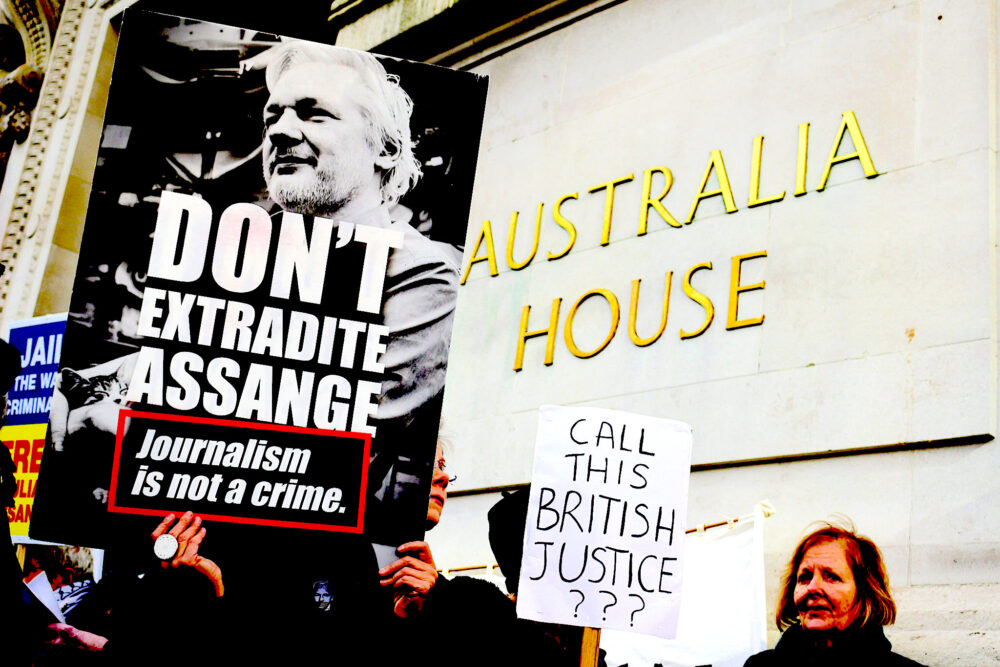
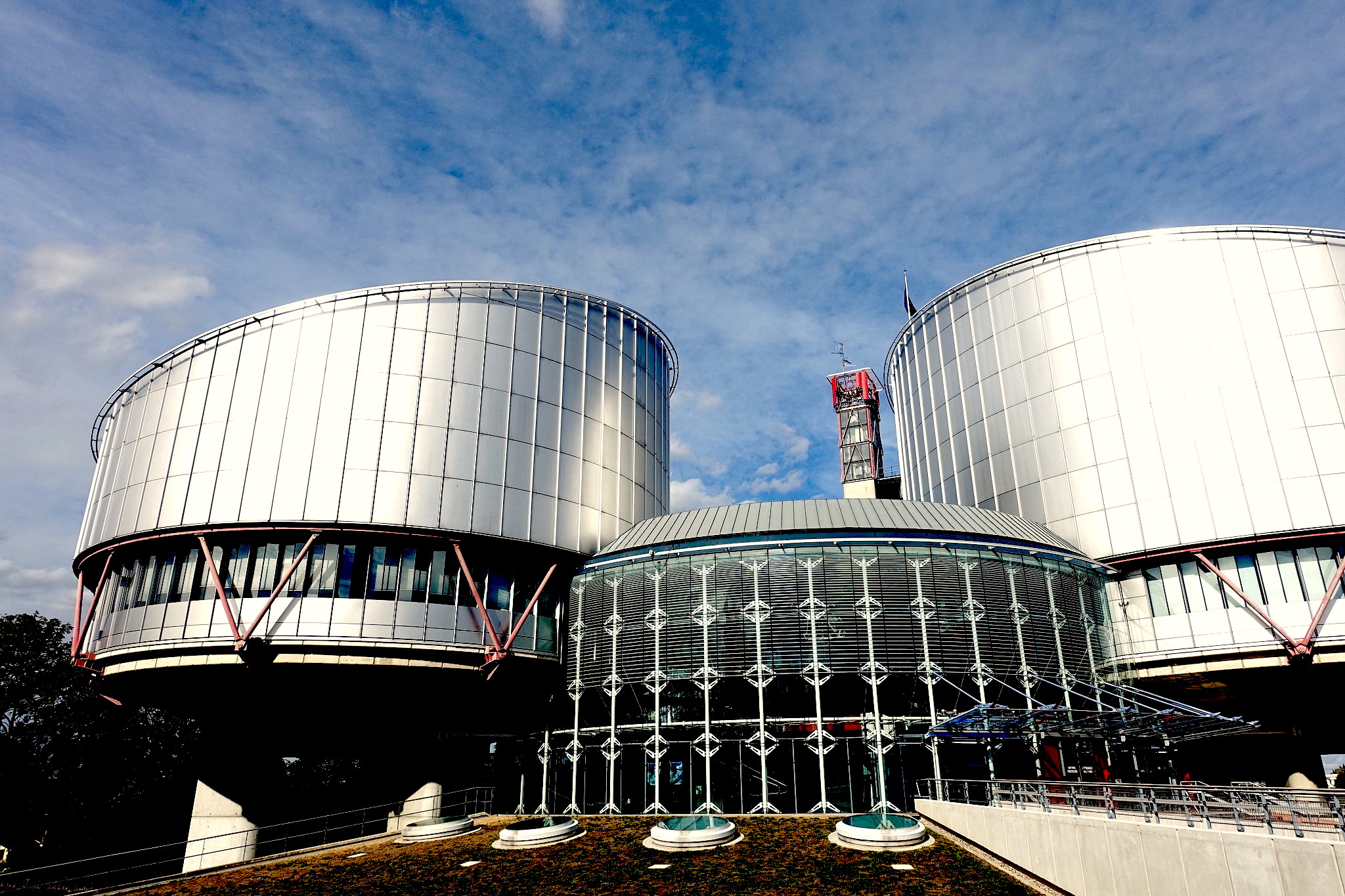
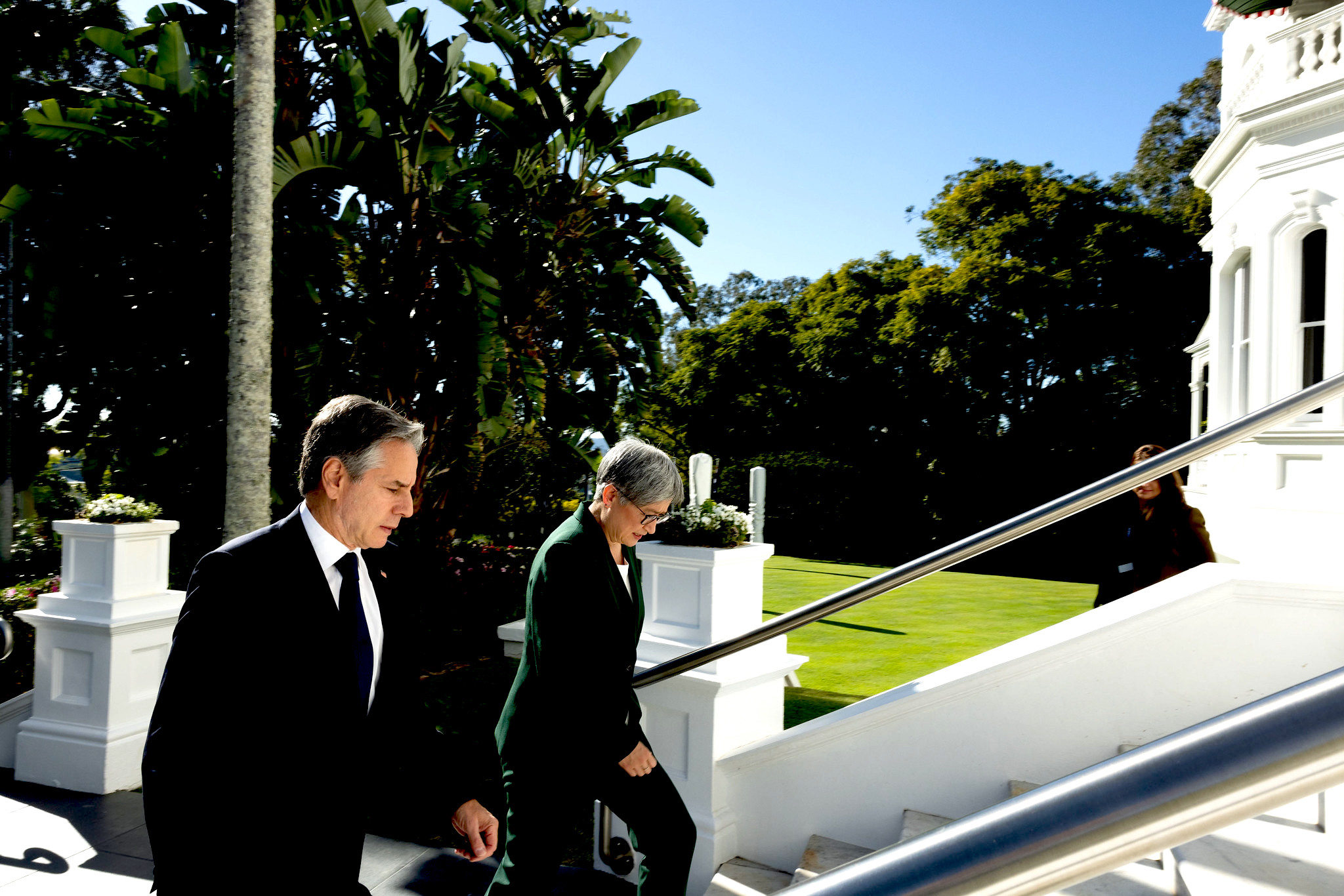
“The US said it would argue at trial that Assange would not get First Amendment protection (Free Speech protections) as he is not a US national (he is Australian).”
They are really going to go there? Were the government to win it’s case on the above grounds, it follows that no non-US person either visiting the US or not — ie: anyone anywhere on earth — can claim *any* of the rights laid out in the US constitution in their legal defense. Truly preposterous.
If there can be no justice for Assange, there can be no justice for anyone else. And when there can no longer be justice, it’s time to disembowel the beast responsible for the departure of justice: the war machine. All the other corruption throughout government and media, corporations and academia is subsidiary to the war machine. That doesn’t excuse the corruption they have freely chosen by any stretch of the imagination. I know, it is too powerful, too much money is involved, it will eventually disembowel itself by overextension of resources, etc. But every fall of the ax upon it pushes its demise, even if is only tangentially. And let there be a war cry made against it, because that which will follow upon either its ultimate supremacy or its ultimate demise is not peace, but retribution, both from inside and outside the realm it controls. To paraphrase Voltaire, that is how you know who your masters really are.
Bless you Cathy Vogan. Thank you for putting this comprehensive load out here for us. The big dead spots in coverage require these periodic reminders in summary form. That we’re fighting the same fight and here’s the compilation of new/old facts. Very grateful indeed. This shameful case drags the life from Julian. It makes us sick to even have to witness our state criminality disguised as lawful. .
I can promise the world one thing that’s for sure. There are a great many Australians who will NEVER again trust America or Britain.
Those harbingers of injustice will be hounded by Australians till their dying days…and then some..!!
Both countries involved in the Assange case are becoming the Devil’s advocate by forgetting one major principle of their core beliefs.
“Let Those Without Sin Cast The First Stone”
Both America and Britain are most definitely NOT without sin….that’s for sure..!
Stupid is as stupid does..!!
There’s another country, one that’s joined at the hip to the US, that is currently committing a tsunami of war crimes that will want JA out of the way indefinitely, for they wouldn’t want anyone revealing classified information about their wrongdoings either. This pending decision will make sure that no journalist will ever go there again. So, knowing how the tail wags the dog in this relationship, they will make sure that justice isn’t served for JA.
The sad thing is that nobody in my social circles speaks or cares about Julian’s predicament apart from me. Even when I point out the implications of sending him down for life, like setting a precedent for any journalist who may wish to expose future war crimes and thus holding state power to account, they disengage and change the conversation as soon as they can.
These people are not thick by any means, they just shrug their shoulders and don’t give a it a second thought. They are like drones, programmed only to care about the banal, trivial and superficial things in their lives.
Is this what the establishment through the UKs state education and Rupert Murdochs media has done?
“for any journalist who may wish to expose future war crimes”
Well Arch, we don’t really need journalists now to expose war crimes. They are being committed right in front of our face with no conscience as to the morals or ethics.
Actual, the crimes are not committed in front of us…we are fundamentally depended on journalists. Even the immediate crimes in my own state, county and village, I very very seldom witness directly.
America has ALWAYS been a dirty player – a very DISHONEST ‘broker’.
Justice is rapidly dissappearing from the West, as are human rights and other personal freedoms. At best, it only exists in non-political cases, and at worst, it doesn’t exist at all. This case is a prime example of the latter.
As we descend into authoritarianism, tyranny and police state oppression, people like Julian Assange will be held up as martyrs.
Sad to say, but by incarcerating him for one minute the US government has won. I think they’re just toying with him in a malevolent way, now. The message has been sent. No mercy for exposing the horrid truths of power.
Will Assange become the U.S./Biden’s Navalny? Life in prison here will kill him. Why do we kill our truth tellers??
“Why do we kill our truth-tellers?” Because they tell the truth! Political and economic power must control ‘the truth’, not tell it.
The two are not in the least comparable.
Assange is not, unlike Navalny, an agent of a malevolent foreign power (a cultivated CIA asset), nor has he been found guilty of defrauding French fashion giant Rocher out of million$, nor is he a neo-Nazi or Nazi adjacent or white supremacist like Navalny’s very own videos have clearly proven him to be.
Thank you for this article. The depth of injustice of the US/UK axis of evil never ceases to amaze me. Being hunted, as Assange is, by this power structure is the surest sign that you stand for all that is good in the world.
One can hope for justice, but whether the UK is just another U.S. colony or even worse than it, one can expect that Julian Assange will eventually join the long list of martyrs created for centuries by the sick people of the world.
What we see playing out is the very best of humanity being persecuted by the dregs of humanity who are totally focused on their careers which depend on shoring up a dying empire. If anyone should be in the dock for life in prison, it is these troglodytes with no regard for the law or human rights. What a total farce is Western democracy.
As we all should or do know now, it’s the U.S. and its vassal states committing crimes against us, as in, we, the peoples of this earth and there is no court with jurisdiction in which to bring a case against the criminals of the empire. We live under tyranny but for how much longer is a question I’m positive the owners of this empire lay awake at night thinking about.